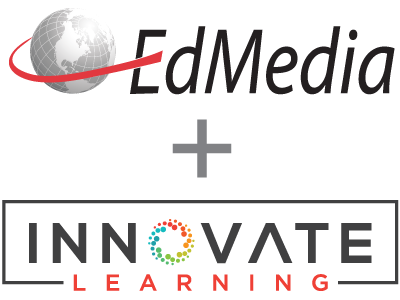
Cooperative vs collaborative group work: educational use of social media and social connection for international students
PROCEEDING
Jade Sleeman, Catherine Lang, Eva Dakich, La Trobe University, Australia
EdMedia + Innovate Learning, in Amsterdam, Netherlands Publisher: Association for the Advancement of Computing in Education (AACE), Waynesville, NC
Abstract
Group work is often employed in educational contexts for social learning benefits, such as co-construction of knowledge, as well as facilitating social connections within the classroom (C-M Zhao & Kuh, 2004) For international students, the social interactions that grow out of group assignments can positively influence learning and adjustment to the new cultural and educational context (Cruickshank, Chen, & Warren, 2012) However, in higher education, participation in group assignments is increasingly mediated by digital technologies, and as such may impact on the opportunities available for international students to make social connections with classmates Therefore, this study investigated the experiences of 26 international students using social media for group assignments and their resulting perceptions of connection to classmates The results suggest that students who engaged in collaborative rather than cooperative interactions via social media were more likely to perceive a connection to their classmates The implications for educators include classroom modelling of digitally-mediated collaborative interactions to benefit students’ participation in group assignments
Citation
Sleeman, J., Lang, C. & Dakich, E. (2018). Cooperative vs collaborative group work: educational use of social media and social connection for international students. In T. Bastiaens, J. Van Braak, M. Brown, L. Cantoni, M. Castro, R. Christensen, G. Davidson-Shivers, K. DePryck, M. Ebner, M. Fominykh, C. Fulford, S. Hatzipanagos, G. Knezek, K. Kreijns, G. Marks, E. Sointu, E. Korsgaard Sorensen, J. Viteli, J. Voogt, P. Weber, E. Weippl & O. Zawacki-Richter (Eds.), Proceedings of EdMedia: World Conference on Educational Media and Technology (pp. 244-249). Amsterdam, Netherlands: Association for the Advancement of Computing in Education (AACE). Retrieved August 28, 2024 from https://www.learntechlib.org/primary/p/184204/.
© 2018 Association for the Advancement of Computing in Education (AACE)
References
View References & Citations Map- Aaen, J., & Dalsgaard, C. (2016). Student Facebook groups as a thirdspace: between social life and schoolwork. Learning, Media and Technology, 41(1), 160-186. Doi:10.1080/17439884.2015.1111241
- Australian Government. (2016). Research snapshot: International student numbers 2015. Retrieved from https://internationaleducation.gov.au/research/ResearchSnapshots/Documents/Student%20Numbers%202015.pdf.
- Cruickshank, K., Chen, H., & Warren, S. (2012). Increasing international and domestic student interaction through groupwork: a case study from the humanities. Higher Education Research& Development, 31(6), 797-810.
- Dillenbourg, P., Baker, M., Blaye, A., & O'Malley, C. (1996). The evolution of research on collaborative learning. In P. Reimann& H. Spada (Eds.), Learning in humans and machines: towards an interdisciplinary learning science (pp. 189-211). Oxford:
- Forbush, E., & Foucault-Welles, B. (2016). Social media use and adaptation among Chinese students beginning to study in the United States. International Journal of Intercultural Relations, 50, 1-12. Doi:
- Greenhow, C., & Lewin, C. (2016). Social media and education: reconceptualizing the boundaries of formal and informal learning. Learning, Media and Technology, 41(1), 6-30. Doi:10.1080/17439884.2015.1064954
- Habib, L., Johannesen, M., & Leikny, Ø. (2014). Experiences and Challenges of International Students in Technology-Rich Learning Environments. Journal of Educational Technology& Society, 17(2), 196-206.
- Janssen, J., Kirschner, F., Erkens, G., Kirschner, P.A., & Paas, F. (2010). Making the Black Box of Collaborative Learning Transparent: Combining Process-Oriented and Cognitive Load Approaches. Educational Psychology Review, 22(2), 139-154.
- Johnson, D.W., & Johnson, R.T. (2009). An Educational Psychology Success Story: Social Interdependence Theory and Cooperative Learning. Educational Researcher, 38(5), 365-379.
- Lee, K., & Ranta, L. (2014). Facebook: Facilitating Social Access and Language Acquisition for International Students? TESL Canada Journal, 31(2), 22.
- Li, X., & Chen, W. (2014). Facebook or Renren? A comparative study of social networking site use and social capital among Chinese international students in the United States. Computers in Human Behavior, 35(0), 116-123. Doi:
- Mikal, J.P., Yang, J., & Lewis, A. (2015). Surfing USA: How Internet Use Prior to and During Study Abroad Affects Chinese Students’ Stress, Integration, and Cultural Learning While in the United States. Journal of Studies in International Education, 19(3), 203224.
- Roschelle, J., & Teasley, S.D. (1995). The Construction of Shared Knowledge in Collaborative Problem Solving. In C.O’Malley (Ed.), Computer Supported Collaborative Learning (pp. 69-97). Berlin, Heidelberg: Springer Berlin Heidelberg.
- Roseth, C.J., Johnson, D.W., & Johnson, R.T. (2008). Promoting early adolescents' achievement and peer relationships: The effects of cooperative, competitive, and individualistic goal structures. Psychological Bulletin, 134(2), 223-246.
- Rui, J.R., & Wang, H. (2015). Social network sites and international students’ cross-cultural adaptation. Computers in Human Behavior, 49, 400-411. Doi:
- Zhao, C.-M., & Kuh, G. (2004). Adding Value: Learning Communities and Student Engagement. Research in Higher Education, 45(2), 115-138.
- Zhao, N., & McDougall, D. (2008). Cultural Influences on Chinese Students' Asynchronous Online Learning in a Canadian University. Journal of Distance Education, 22(2), 59-79.
These references have been extracted automatically and may have some errors. Signed in users can suggest corrections to these mistakes.
Suggest Corrections to References